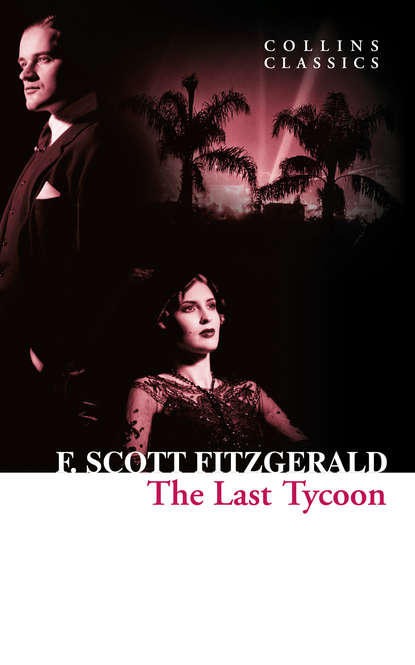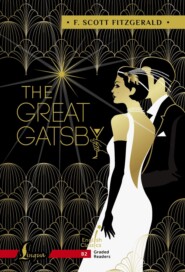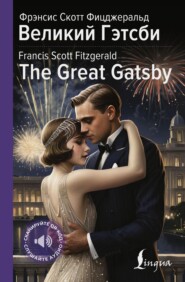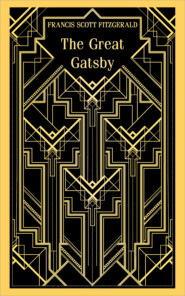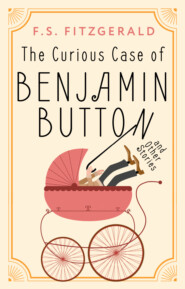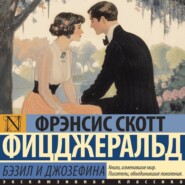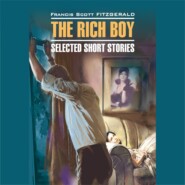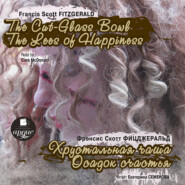По всем вопросам обращайтесь на: info@litportal.ru
(©) 2003-2025.
✖
The Last Tycoon
Год написания книги
2019
Настройки чтения
Размер шрифта
Высота строк
Поля
The Last Tycoon
Francis Scott Key Fitzgerald
HarperCollins is proud to present its new range of best-loved, essential classics.‘They were smiling at each other as if this was the beginning of the world.’The lights of Hollywood do little to distract Cecelia as she watches Monroe Stahr, wunderkind studio executive and object of her desire, descend into a reckless and ardent love affair with an auspicious starlet – an affair that threatens to destroy his reign as the Silver Screen’s golden boy. In this tragic tale Fitzgerald exposes the corruption, sex and towering ambition at the dark heart of 1930s Hollywood.Unfinished at the time of his death, F. Scott Fitzgerald bids his own poignant farewell to the themes that inspired ‘The Great Gatsby’, ‘Tender is the Night’ and ‘The Beautiful and Damned’.
THE LAST TYCOON
F. Scott Fitzgerald
History of Collins (#ulink_458530ef-4355-541b-90b3-0e4c305f3ca8)
In 1819, millworker William Collins from Glasgow, Scotland, set up a company for printing and publishing pamphlets, sermons, hymn books, and prayer books. That company was Collins and was to mark the birth of HarperCollins Publishers as we know it today. The long tradition of Collins dictionary publishing can be traced back to the first dictionary William published in 1824, Greek and English Lexicon. Indeed, from 1840 onwards, he began to produce illustrated dictionaries and even obtained a licence to print and publish the Bible.
Soon after, William published the first Collins novel, Ready Reckoner; however, it was the time of the Long Depression, where harvests were poor, prices were high, potato crops had failed, and violence was erupting in Europe. As a result, many factories across the country were forced to close down and William chose to retire in 1846, partly due to the hardships he was facing.
Aged 30, William’s son, William II, took over the business. A keen humanitarian with a warm heart and a generous spirit, William II was truly “Victorian” in his outlook. He introduced new, up-to-date steam presses and published affordable editions of Shakespeare’s works and ThePilgrim’s Progress, making them available to the masses for the first time. A new demand for educational books meant that success came with the publication of travel books, scientific books, encyclopedias, and dictionaries. This demand to be educated led to the later publication of atlases, and Collins also held the monopoly on scripture writing at the time.
In the 1860s Collins began to expand and diversify and the idea of “books for the millions” was developed. Affordable editions of classical literature were published, and in 1903 Collins introduced 10 titles in their Collins Handy Illustrated Pocket Novels. These proved so popular that a few years later this had increased to an output of 50 volumes, selling nearly half a million in their year of publication. In the same year, The Everyman’s Library was also instituted, with the idea of publishing an affordable library of the most important classical works, biographies, religious and philosophical treatments, plays, poems, travel, and adventure. This series eclipsed all competition at the time, and the introduction of paperback books in the 1950s helped to open that market and marked a high point in the industry.
HarperCollins is and has always been a champion of the classics, and the current Collins Classics series follows in this tradition – publishing classical literature that is affordable and available to all. Beautifully packaged, highly collectible, and intended to be reread and enjoyed at every opportunity.
Life & Times (#ulink_dbf16621-c6e3-5d07-8f08-fc359c047ddd)
The Last Tycoon
When F. Scott Fitzgerald died in 1940, The Love of the Last Tycoon remained unfinished and unpublished. The novel – renamed The Last Tycoon on publication – was published posthumously in 1941 after it had been completed and edited from the unfinished manuscript by a friend of Scott Fitzgerald, Edmund Wilson.
The novel falls into a genre known as roman à clef, a French phrase which literally means ‘novel to key’. The phrase is applied to novels that are essentially true stories based on real people and situations, but thinly veiled as fiction. The plot of The Last Tycoon is largely based on an observation of the power-play between a Hollywood film producer and a studio boss, and is interwoven with other aspects of life and love.
In terms of literary style, the book contains a blend of first- and third-person narratives. Some scenes are recounted twice, once from each perspective, to emphasize the point that memory is subjective, and so one person’s recollection of an event or conversation, a person or place, will naturally differ from another’s. The repetition of the story-telling therefore highlights this discrepancy in the recollection and retelling of the same memory. By using this style, Scott Fitzgerald demonstrates his understanding of human behaviour and interaction, a feature of his writing that made him one of the great novelists of the twentieth century.
Debate often rages over whether or not unfinished novels should be completed and published after the death of the author; since no one can ever know the author’s true intentions, the artistic integrity of their work is potentially at risk. Over the years, The Last Tycoon has been successfully adapted for television, stage and film, demonstrating that much of the novel’s appeal is based on its plot – an aspect of the novel that F. Scott Fitzgerald himself created.
Earlier Works
Fitzgerald wrote a number of short stories, which were packed in a single volume entitled Tales of the Jazz Age (1922). The best-known of these shorts is The Curious Case of Benjamin Button, in which the eponymous central character ages in reverse. He is born old and decrepit and then goes through all of the other stages of life until he eventually dies as a newborn baby. What makes the tale most interesting is the juxtaposition between Benjamin and the people with whom he has relationships, because his life is being carried out in the opposite direction to theirs.
A similar device is used in Martin Amis’ Time’s Arrow (1991), except that the whole world is played backward, so that curious concepts are explored, such as doctors causing injuries, instead of healing them. Also, the reader eventually realizes that the central character is an erstwhile Holocaust doctor when his reverse life takes him to a younger age. Of course, this concept of playing with time was first investigated by H. G. Wells in his novel The Time Machine (1895). In this story Wells has the central character existing in real time, but the machine enables him to travel both forward and backward in time.
There are ten other shorts in Tales of the Jazz Age. Some examine the human characteristics that made the Jazz Age what it was, such as the excess, frivolity, vanity, pretensions, and cultural hysteria brought about by the mood following World War I.
Just as the Restoration in England generated a kind of lighthearted optimism after the suppressive atmosphere under the Puritans, so the Jazz Age was a kind of celebration of life after so much death in Europe. It was marked by the popularity of jazz music and an associated dance craze, but would all come to an end in the early 1930s with the Great Depression.
Exploring the topic of excess in this collection is the tale A Diamond as Big as the Ritz. In this story, Fitzgerald gives the central character a dilemma to solve. In his quest to become rich, Percy Washington discovers a mountain comprising a single diamond, but he realizes that if he saturates the market with diamonds, they will become commonplace and have no value. Both stories highlight Fitzgerald’s underlying inclination to experiment with intellectual and philosophical concepts in his work. This is largely why he is regarded as a literary writer, rather than merely a teller of tales.
On face value, much of his writing would seem to be amusing comment on his own “Smart Set” lifestyle and aimed at others from the same milieu, but Fitzgerald was an intelligent man with considerable depth to his thinking. It is just that he also knew how to be commercial enough to make money from his writing, which demanded a layer of gloss and polish. His was a world of inherited privilege, inhabited by pseudo-intellectuals and posers. He himself made several trips to Paris and the French Riviera, where he cultivated and honed a lifestyle that went hand in hand with his writing style. He wrote about what he knew, but he injected other elements to facilitate his curiosity about the human condition and give his writing greater literary weight.
Fitzgerald and Hemingway
Fitzgerald was friends with arguably the greatest American writer, Ernest Hemingway. Hemingway encouraged Fitzgerald to pursue his prose with artistic integrity, but grew frustrated with Fitzgerald’s tendency toward making his literature commercial. However, most of Fitzgerald’s novels did not perform that well, so a large part of his income came from magazine work, writing short stories that, by their very nature, had to conform to editorial requirements. Nine years after The Great Gatsby, he had struggled to complete his final novel Tender Is The Night. Unfortunately for Fitzgerald, the book was received with disappointment, and the decline of his writing career continued unabated. In the latter half of the 1930s, he found work developing movie scripts and carried out further commercial writing. By the time of his death, his literary career had died, too.
In hindsight, Fitzgerald’s work is regarded variously, but The Great Gatsby has become the quintessential American classic. Some feel that Fitzgerald’s talent would have been better focused on his novel writing, but fiscal matters always dictated that he continue with his commercial work. However, Hemingway may have been a heavyweight writer but he was certainly not a contented man. For him the praise he garnered for each new book was a fix. When he ran out of ideas, he suffered severe depression and ultimately took his own life with a shotgun. Fitzgerald battled on in a workmanlike manner even when plaudits were a distant memory. Fitzgerald the legendary writer has now outlived Fitzgerald the man several times over.
CONTENTS
Cover (#ucbe82788-9aae-55d8-8d5f-7d737c0f3f26)
Title Page (#u307b475e-ddd1-5ccb-993e-21c3f5debc9b)
History of Collins (#u21884347-7983-50c3-a9b6-91adfa5a9a2d)
Life & Times (#u58201ee5-d4e5-5954-8a2a-96ed35f1f417)
Chapter 1 (#ued528c3e-0bf9-5a2f-8a4c-19e3a52087e3)
Chapter 2 (#u0c6ef433-b806-523d-a376-9fb5bf610c9e)
Chapter 3 (#u32d18aba-1aef-5542-93fd-ef842aa67131)
Chapter 4 (#litres_trial_promo)
Chapter 5 (#litres_trial_promo)
Chapter 6 (#litres_trial_promo)
Classic Literature: Words and Phrases (#litres_trial_promo)
Copyright (#litres_trial_promo)
About the Publisher (#litres_trial_promo)
CHAPTER 1 (#ulink_02675587-4494-5061-b188-ee815b82d7b8)
Though I haven’t ever been on the screen I was brought up in pictures. Rudolph Valentino came to my fifth birthday party—or so I was told. I put this down only to indicate that even before the age of reason I was in a position to watch the wheels go round.
I was going to write my memoirs once, The Producer’s Daughter, but at eighteen you never quite get around to anything like that. It’s just as well—it would have been as flat as an old column of Lolly Parsons’. My father was in the picture business as another man might be in cotton or steel, and I took it tranquilly. At the worst I accepted Hollywood with the resignation of a ghost assigned to a haunted house. I knew what you were supposed to think about it but I was obstinately unhorrified.
This is easy to say, but harder to make people understand. When I was at Bennington some of the English teachers who pretended an indifference to Hollywood or its products, really hated it. Hated it way down deep as a threat to their existence. Even before that, when I was in a convent, a sweet little nun asked me to get her a script of a screen play so she could “teach her class about movie writing” as she had taught them about the essay and the short story. I got the script for her, and I suppose she puzzled over it and puzzled over it, but it was never mentioned in class, and she gave it back to me with an air of offended surprise and not a single comment. That’s what I half expect to happen to this story.
You can take Hollywood for granted like I did, or you can dismiss it with the contempt we reserve for what we don’t understand. It can be understood too, but only dimly and in flashes. Not half a dozen men have ever been able to keep the whole equation of pictures in their heads. And perhaps the closest a woman can come to the set-up is to try and understand one of those men.
The world from an airplane I knew. Father always had us travel back and forth that way from school and college. After my sister died when I was a junior, I travelled to and fro alone, and the journey always made me think of her, made me somewhat solemn and subdued. Sometimes there were picture people I knew on board the plane, and occasionally there was an attractive college boy—but not often during the depression. I seldom really fell asleep during the trip, what with thoughts of Eleanor and the sense of that sharp rip between coast and coast—at least not till we had left those lonely little airports in Tennessee.
This trip was so rough that the passengers divided early into those who turned in right away and those who didn’t want to turn in at all. There were two of these latter right across from me, and I was pretty sure from their fragmentary conversation that they were from Hollywood—one of them because he looked like it: a middle-aged Jew, who alternately talked with nervous excitement or else crouched as if ready to spring, in a harrowing silence; the other a pale, plain, stocky man of thirty, whom I was sure I had seen before. He had been to the house or something. But it might have been when I was a little girl, and so I wasn’t offended that he didn’t recognize me.
The stewardess—she was tall, handsome and flashing dark, a type that they seemed to run to—asked me if she could make up my berth.
“—and, dear, do you want an aspirin?” She perched on the side of the seat and rocked precariously to and fro with the June hurricane. “—or nembutal?”
“No.”
Francis Scott Key Fitzgerald
HarperCollins is proud to present its new range of best-loved, essential classics.‘They were smiling at each other as if this was the beginning of the world.’The lights of Hollywood do little to distract Cecelia as she watches Monroe Stahr, wunderkind studio executive and object of her desire, descend into a reckless and ardent love affair with an auspicious starlet – an affair that threatens to destroy his reign as the Silver Screen’s golden boy. In this tragic tale Fitzgerald exposes the corruption, sex and towering ambition at the dark heart of 1930s Hollywood.Unfinished at the time of his death, F. Scott Fitzgerald bids his own poignant farewell to the themes that inspired ‘The Great Gatsby’, ‘Tender is the Night’ and ‘The Beautiful and Damned’.
THE LAST TYCOON
F. Scott Fitzgerald
History of Collins (#ulink_458530ef-4355-541b-90b3-0e4c305f3ca8)
In 1819, millworker William Collins from Glasgow, Scotland, set up a company for printing and publishing pamphlets, sermons, hymn books, and prayer books. That company was Collins and was to mark the birth of HarperCollins Publishers as we know it today. The long tradition of Collins dictionary publishing can be traced back to the first dictionary William published in 1824, Greek and English Lexicon. Indeed, from 1840 onwards, he began to produce illustrated dictionaries and even obtained a licence to print and publish the Bible.
Soon after, William published the first Collins novel, Ready Reckoner; however, it was the time of the Long Depression, where harvests were poor, prices were high, potato crops had failed, and violence was erupting in Europe. As a result, many factories across the country were forced to close down and William chose to retire in 1846, partly due to the hardships he was facing.
Aged 30, William’s son, William II, took over the business. A keen humanitarian with a warm heart and a generous spirit, William II was truly “Victorian” in his outlook. He introduced new, up-to-date steam presses and published affordable editions of Shakespeare’s works and ThePilgrim’s Progress, making them available to the masses for the first time. A new demand for educational books meant that success came with the publication of travel books, scientific books, encyclopedias, and dictionaries. This demand to be educated led to the later publication of atlases, and Collins also held the monopoly on scripture writing at the time.
In the 1860s Collins began to expand and diversify and the idea of “books for the millions” was developed. Affordable editions of classical literature were published, and in 1903 Collins introduced 10 titles in their Collins Handy Illustrated Pocket Novels. These proved so popular that a few years later this had increased to an output of 50 volumes, selling nearly half a million in their year of publication. In the same year, The Everyman’s Library was also instituted, with the idea of publishing an affordable library of the most important classical works, biographies, religious and philosophical treatments, plays, poems, travel, and adventure. This series eclipsed all competition at the time, and the introduction of paperback books in the 1950s helped to open that market and marked a high point in the industry.
HarperCollins is and has always been a champion of the classics, and the current Collins Classics series follows in this tradition – publishing classical literature that is affordable and available to all. Beautifully packaged, highly collectible, and intended to be reread and enjoyed at every opportunity.
Life & Times (#ulink_dbf16621-c6e3-5d07-8f08-fc359c047ddd)
The Last Tycoon
When F. Scott Fitzgerald died in 1940, The Love of the Last Tycoon remained unfinished and unpublished. The novel – renamed The Last Tycoon on publication – was published posthumously in 1941 after it had been completed and edited from the unfinished manuscript by a friend of Scott Fitzgerald, Edmund Wilson.
The novel falls into a genre known as roman à clef, a French phrase which literally means ‘novel to key’. The phrase is applied to novels that are essentially true stories based on real people and situations, but thinly veiled as fiction. The plot of The Last Tycoon is largely based on an observation of the power-play between a Hollywood film producer and a studio boss, and is interwoven with other aspects of life and love.
In terms of literary style, the book contains a blend of first- and third-person narratives. Some scenes are recounted twice, once from each perspective, to emphasize the point that memory is subjective, and so one person’s recollection of an event or conversation, a person or place, will naturally differ from another’s. The repetition of the story-telling therefore highlights this discrepancy in the recollection and retelling of the same memory. By using this style, Scott Fitzgerald demonstrates his understanding of human behaviour and interaction, a feature of his writing that made him one of the great novelists of the twentieth century.
Debate often rages over whether or not unfinished novels should be completed and published after the death of the author; since no one can ever know the author’s true intentions, the artistic integrity of their work is potentially at risk. Over the years, The Last Tycoon has been successfully adapted for television, stage and film, demonstrating that much of the novel’s appeal is based on its plot – an aspect of the novel that F. Scott Fitzgerald himself created.
Earlier Works
Fitzgerald wrote a number of short stories, which were packed in a single volume entitled Tales of the Jazz Age (1922). The best-known of these shorts is The Curious Case of Benjamin Button, in which the eponymous central character ages in reverse. He is born old and decrepit and then goes through all of the other stages of life until he eventually dies as a newborn baby. What makes the tale most interesting is the juxtaposition between Benjamin and the people with whom he has relationships, because his life is being carried out in the opposite direction to theirs.
A similar device is used in Martin Amis’ Time’s Arrow (1991), except that the whole world is played backward, so that curious concepts are explored, such as doctors causing injuries, instead of healing them. Also, the reader eventually realizes that the central character is an erstwhile Holocaust doctor when his reverse life takes him to a younger age. Of course, this concept of playing with time was first investigated by H. G. Wells in his novel The Time Machine (1895). In this story Wells has the central character existing in real time, but the machine enables him to travel both forward and backward in time.
There are ten other shorts in Tales of the Jazz Age. Some examine the human characteristics that made the Jazz Age what it was, such as the excess, frivolity, vanity, pretensions, and cultural hysteria brought about by the mood following World War I.
Just as the Restoration in England generated a kind of lighthearted optimism after the suppressive atmosphere under the Puritans, so the Jazz Age was a kind of celebration of life after so much death in Europe. It was marked by the popularity of jazz music and an associated dance craze, but would all come to an end in the early 1930s with the Great Depression.
Exploring the topic of excess in this collection is the tale A Diamond as Big as the Ritz. In this story, Fitzgerald gives the central character a dilemma to solve. In his quest to become rich, Percy Washington discovers a mountain comprising a single diamond, but he realizes that if he saturates the market with diamonds, they will become commonplace and have no value. Both stories highlight Fitzgerald’s underlying inclination to experiment with intellectual and philosophical concepts in his work. This is largely why he is regarded as a literary writer, rather than merely a teller of tales.
On face value, much of his writing would seem to be amusing comment on his own “Smart Set” lifestyle and aimed at others from the same milieu, but Fitzgerald was an intelligent man with considerable depth to his thinking. It is just that he also knew how to be commercial enough to make money from his writing, which demanded a layer of gloss and polish. His was a world of inherited privilege, inhabited by pseudo-intellectuals and posers. He himself made several trips to Paris and the French Riviera, where he cultivated and honed a lifestyle that went hand in hand with his writing style. He wrote about what he knew, but he injected other elements to facilitate his curiosity about the human condition and give his writing greater literary weight.
Fitzgerald and Hemingway
Fitzgerald was friends with arguably the greatest American writer, Ernest Hemingway. Hemingway encouraged Fitzgerald to pursue his prose with artistic integrity, but grew frustrated with Fitzgerald’s tendency toward making his literature commercial. However, most of Fitzgerald’s novels did not perform that well, so a large part of his income came from magazine work, writing short stories that, by their very nature, had to conform to editorial requirements. Nine years after The Great Gatsby, he had struggled to complete his final novel Tender Is The Night. Unfortunately for Fitzgerald, the book was received with disappointment, and the decline of his writing career continued unabated. In the latter half of the 1930s, he found work developing movie scripts and carried out further commercial writing. By the time of his death, his literary career had died, too.
In hindsight, Fitzgerald’s work is regarded variously, but The Great Gatsby has become the quintessential American classic. Some feel that Fitzgerald’s talent would have been better focused on his novel writing, but fiscal matters always dictated that he continue with his commercial work. However, Hemingway may have been a heavyweight writer but he was certainly not a contented man. For him the praise he garnered for each new book was a fix. When he ran out of ideas, he suffered severe depression and ultimately took his own life with a shotgun. Fitzgerald battled on in a workmanlike manner even when plaudits were a distant memory. Fitzgerald the legendary writer has now outlived Fitzgerald the man several times over.
CONTENTS
Cover (#ucbe82788-9aae-55d8-8d5f-7d737c0f3f26)
Title Page (#u307b475e-ddd1-5ccb-993e-21c3f5debc9b)
History of Collins (#u21884347-7983-50c3-a9b6-91adfa5a9a2d)
Life & Times (#u58201ee5-d4e5-5954-8a2a-96ed35f1f417)
Chapter 1 (#ued528c3e-0bf9-5a2f-8a4c-19e3a52087e3)
Chapter 2 (#u0c6ef433-b806-523d-a376-9fb5bf610c9e)
Chapter 3 (#u32d18aba-1aef-5542-93fd-ef842aa67131)
Chapter 4 (#litres_trial_promo)
Chapter 5 (#litres_trial_promo)
Chapter 6 (#litres_trial_promo)
Classic Literature: Words and Phrases (#litres_trial_promo)
Copyright (#litres_trial_promo)
About the Publisher (#litres_trial_promo)
CHAPTER 1 (#ulink_02675587-4494-5061-b188-ee815b82d7b8)
Though I haven’t ever been on the screen I was brought up in pictures. Rudolph Valentino came to my fifth birthday party—or so I was told. I put this down only to indicate that even before the age of reason I was in a position to watch the wheels go round.
I was going to write my memoirs once, The Producer’s Daughter, but at eighteen you never quite get around to anything like that. It’s just as well—it would have been as flat as an old column of Lolly Parsons’. My father was in the picture business as another man might be in cotton or steel, and I took it tranquilly. At the worst I accepted Hollywood with the resignation of a ghost assigned to a haunted house. I knew what you were supposed to think about it but I was obstinately unhorrified.
This is easy to say, but harder to make people understand. When I was at Bennington some of the English teachers who pretended an indifference to Hollywood or its products, really hated it. Hated it way down deep as a threat to their existence. Even before that, when I was in a convent, a sweet little nun asked me to get her a script of a screen play so she could “teach her class about movie writing” as she had taught them about the essay and the short story. I got the script for her, and I suppose she puzzled over it and puzzled over it, but it was never mentioned in class, and she gave it back to me with an air of offended surprise and not a single comment. That’s what I half expect to happen to this story.
You can take Hollywood for granted like I did, or you can dismiss it with the contempt we reserve for what we don’t understand. It can be understood too, but only dimly and in flashes. Not half a dozen men have ever been able to keep the whole equation of pictures in their heads. And perhaps the closest a woman can come to the set-up is to try and understand one of those men.
The world from an airplane I knew. Father always had us travel back and forth that way from school and college. After my sister died when I was a junior, I travelled to and fro alone, and the journey always made me think of her, made me somewhat solemn and subdued. Sometimes there were picture people I knew on board the plane, and occasionally there was an attractive college boy—but not often during the depression. I seldom really fell asleep during the trip, what with thoughts of Eleanor and the sense of that sharp rip between coast and coast—at least not till we had left those lonely little airports in Tennessee.
This trip was so rough that the passengers divided early into those who turned in right away and those who didn’t want to turn in at all. There were two of these latter right across from me, and I was pretty sure from their fragmentary conversation that they were from Hollywood—one of them because he looked like it: a middle-aged Jew, who alternately talked with nervous excitement or else crouched as if ready to spring, in a harrowing silence; the other a pale, plain, stocky man of thirty, whom I was sure I had seen before. He had been to the house or something. But it might have been when I was a little girl, and so I wasn’t offended that he didn’t recognize me.
The stewardess—she was tall, handsome and flashing dark, a type that they seemed to run to—asked me if she could make up my berth.
“—and, dear, do you want an aspirin?” She perched on the side of the seat and rocked precariously to and fro with the June hurricane. “—or nembutal?”
“No.”





